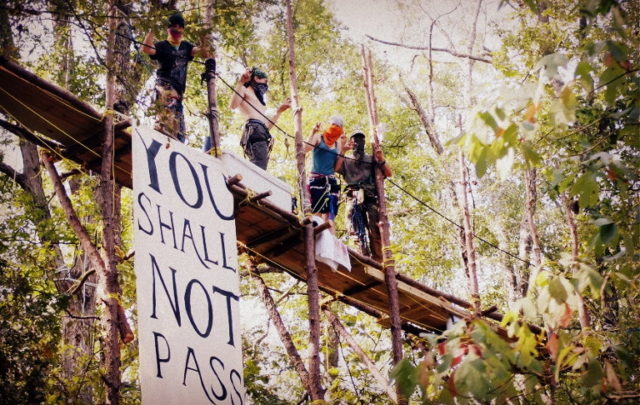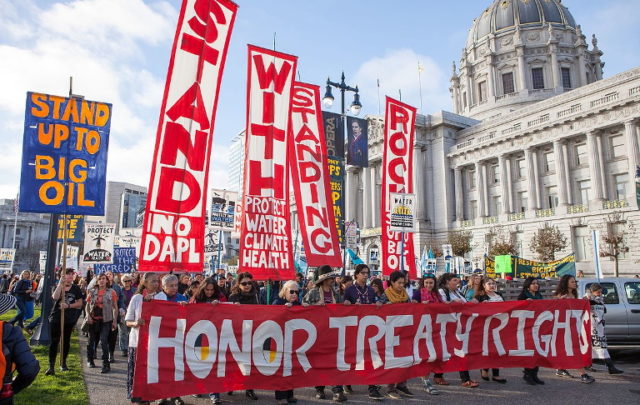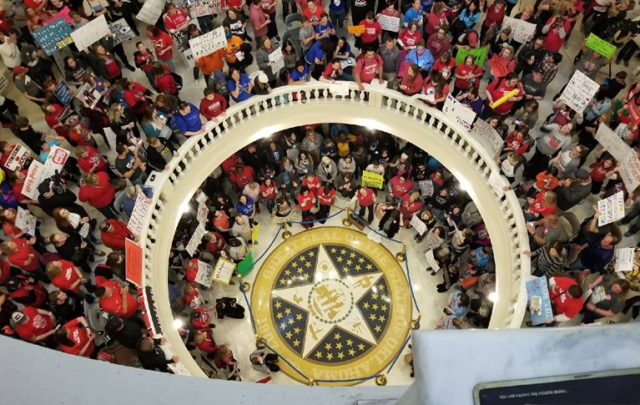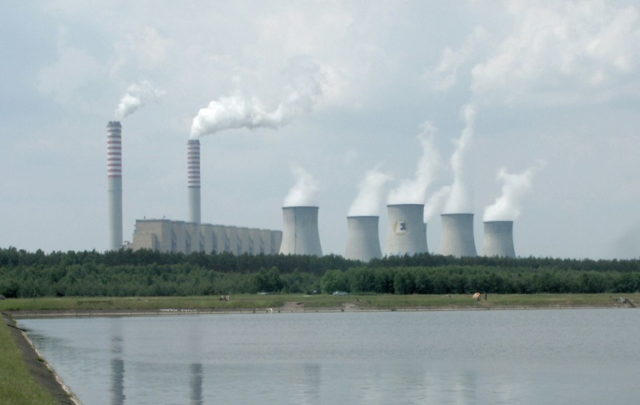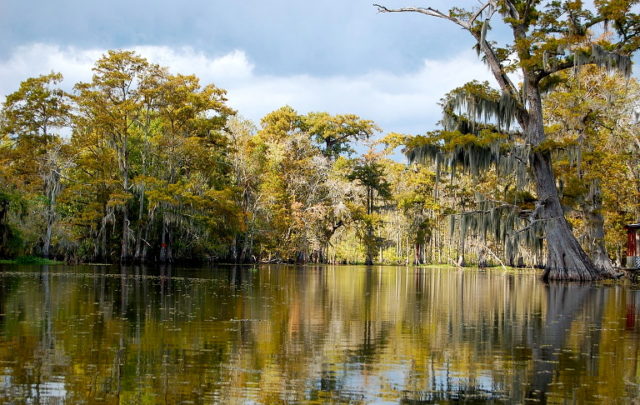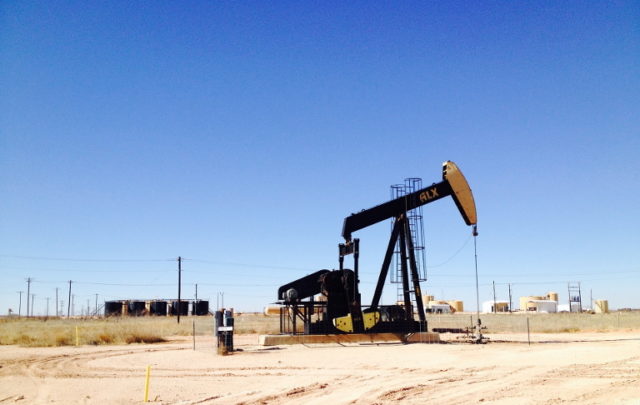Natasha Geiling is a reporter at ThinkProgress.
Minnesota Court Says Activists can Use Climate Change as a Defense in Trial
Does climate change pose such an imminent threat to the planet that it’s okay to break the law in order to stop it? Four climate activists currently awaiting trial in Minnesota for shutting off a tar sands pipeline think so — and on Monday, the Minnesota Court of Appeals agreed that they should be allowed to make that argument before a jury when their case goes to trial.
April 25, 2018
These States want to Make Planning a Pipeline Protest a Crime
As pipeline protests continue to delay and, sometimes, stop energy projects in their tracks, the fossil fuel industry and Republican lawmakers are looking for new ways to clamp down on environmental protest.
April 19, 2018
You Can’t Talk about Teacher Strikes without Talking about the Fossil Fuel Industry
But beyond illuminating the often dismal conditions under which teachers in this country are often forced to work, the walkouts in Oklahoma and West Virginia illuminate something else — what happens when states prioritize tax breaks for fossil fuel companies over education.
April 17, 2018
New Study Gives 150 Million Reasons to Reduce Carbon Emissions
Taking serious action on climate change now could mean saving hundreds of millions of lives across the globe, according to a new study published in Nature Climate Change on Monday by researchers at Duke University.
March 21, 2018
Federal Court Temporarily Pauses Construction of Controversial Louisiana Pipeline
The preliminary injunction against construction of the Bayou Bridge pipeline — which would stretch 162 miles across Louisiana — was cheered as a major victory by environmental groups, who challenged the Army Corps of Engineers’ initial approval of the project.
February 28, 2018
Fracking Companies won’t Have to Disclose Chemicals Thanks to Trump Administration Rollback
Both environmental groups and California hope that a judge will ultimately invalidate the administration’s repeal, finally allowing federal regulations on fracking on federal and tribal lands to go into place (the original rules finalized by the Obama administration were put on hold by litigation).
January 26, 2018


